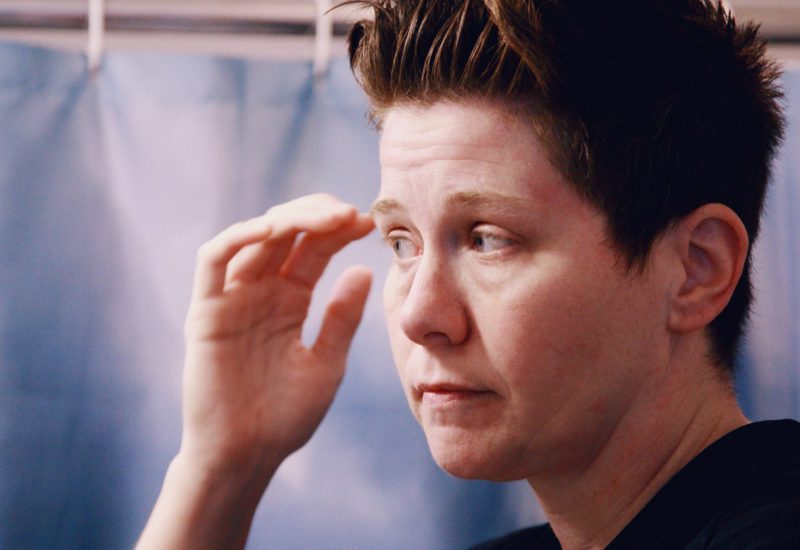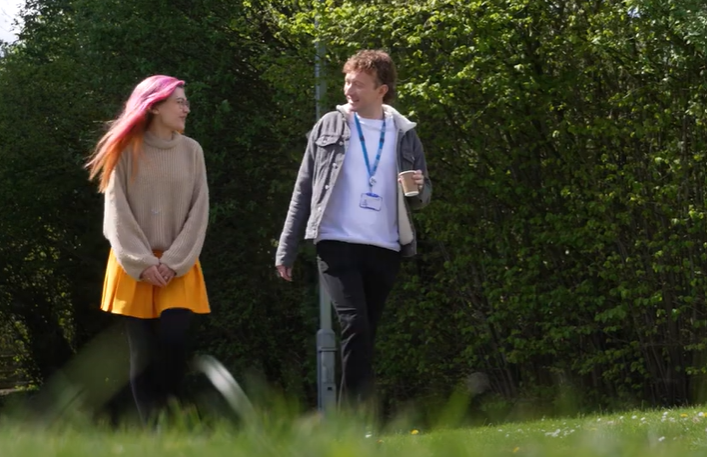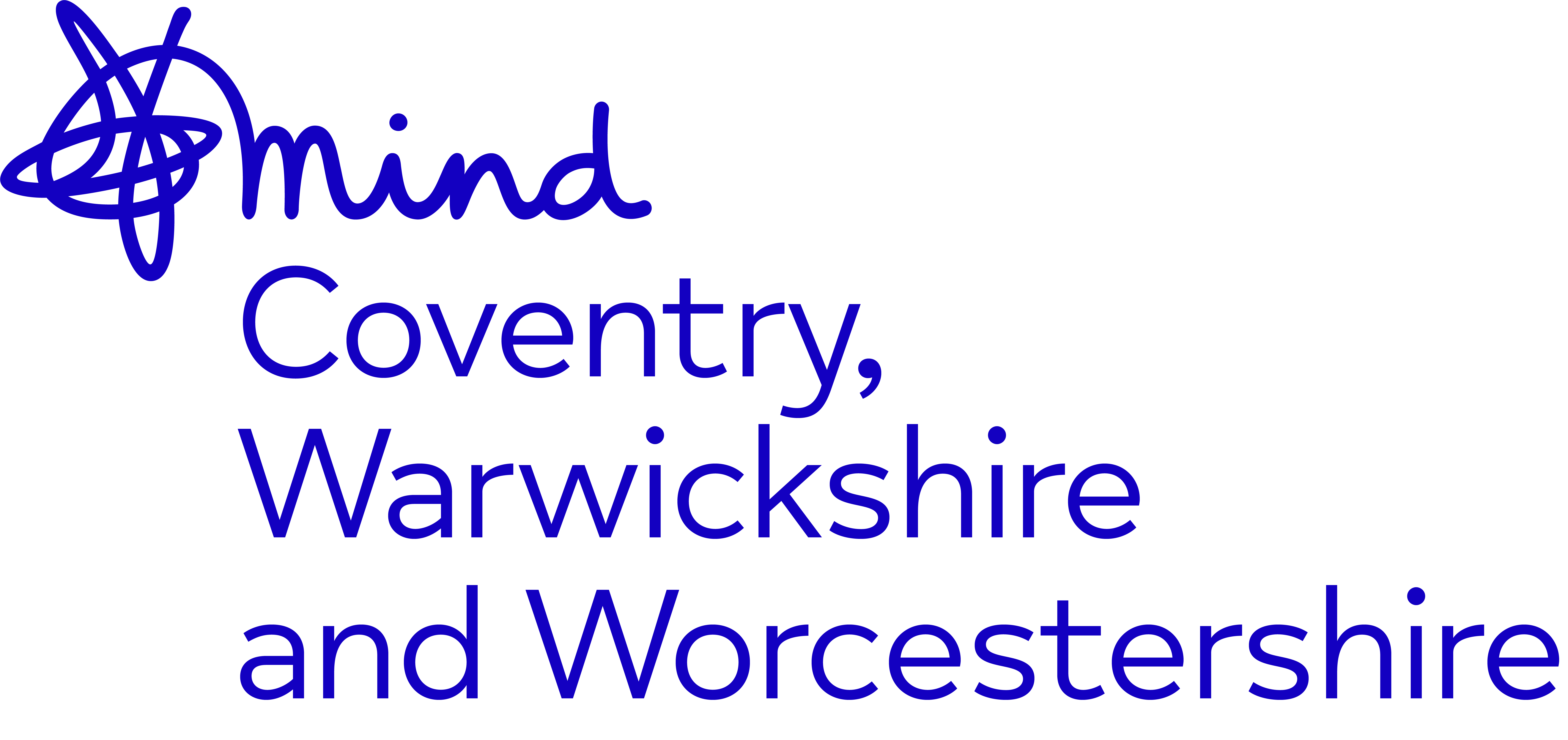An Insight into Eating Disorders: How to help someone living with an ED

Eating Disorders
In this latest blog, we discuss eating disorders and share a personal story from one of our SWWMind team members on how it feels to be diagnosed with an eating disorder and how she took steps to overcome it.
Types of Eating Disorders:
It is believed that approximately 1.25 million people in the UK have an eating disorder.
There are many types eating disorders, such as Anorexia Nervosa, Bulimia Nervosa, Binge Eating Disorder, Orthorexia, and OFSED (other specified feeding or eating disorder). For a full list and information of the different types of eating disorders, you can visit these helpful links:
Mind – Types of Eating Disorders
Beat Eating Disorders – Types of Eating Disorders
Anorexia has the highest mortality rate of any psychiatric disorder, from medical complications associated with the illness as well as suicide. Bulimia is associated with severe medical complications, and binge eating disorder sufferers often experience the medical complications associated with obesity. In every case, eating disorders severely affect the quality of life of the sufferer and those that care for them.

Treatments for Eating Disorders:
- Talking to your doctor – talking about your eating problems can feel scary. But to access treatment, the first step is usually to talk to your GP or hospital doctor. They should then be able to refer you to specialist services.
- Cognitive behavioural therapy for eating disorders (CBT-ED) – this form of CBT is specifically adapted to treat eating disorders. It may be offered for anorexia, bulimia or binge eating disorder.
- Family therapy – this means working through issues with your family and the support of a therapist. It’s commonly offered to people with anorexia, especially younger people. You might explore situations that could relate to underlying issues of your eating problem. It can help your family understand your eating problem and how to support you.
- Medication – There are no specific drugs to treat eating disorders. However, you may be offered medication for underlying factors such as depression or anxiety. For example, you may be offered an antidepressant to help manage these feelings.
- Admission to a hospital or clinic – you may need to go into a hospital or clinic because of your eating problem.
For more information on how to access treatment for an eating disorder, please take a look at the following link:
Mind – Eating Disorder Treatments
Supporting Someone with an Eating Disorder:
If you’re worried about someone then it’s important to encourage them to seek treatment as quickly as possible to ensure the best chance of recovery. But treatment is only one aspect of the recovery journey, and there are ways outside of your loved one’s treatment programme that you can play a vital role in helping them get better, regardless of your relationship to them. This can range from being a listening ear, to going to the supermarket with them and supporting them after mealtimes. Each person is different and will need different things, but this will give you some ideas about what you can do to help. And remember, one of the most important things you can do for your loved one is look after yourself.
General tips for supporting someone:
- Recognise that you are not to blame.
- Acknowledge to your loved one that they are not to blame.
- Recognise how distressing the illness is for your loved one.
- Educate yourself about eating disorders where you can.
- Ask your loved one how they are feeling and what they are thinking, rather than making assumptions.
- Avoid discussing weight, shape, food, and diets in front of your loved one, and model a balanced relationship with your own food and exercise.
- Remind yourself that things can change and reassure your loved one that recovery is possible.
- Ask your loved one what you can do to help – for example, helping them to stick to regular eating, putting in boundaries following mealtimes, having a space to talk about how they are feeling. Your loved one may respond that you can just “leave them alone” or that you can’t do anything to help, so here it can be helpful to remind them you can hear their distress and how difficult things are, and you are there if they need you.
- Recognise any ‘accommodating or enabling behaviours’ – behaviours that you do to help reduce your loved one’s distress from the eating disorder, for example, cleaning up vomit or cooking different meals for them, but that collude with the disorder and cover up the negative consequences of the behaviours.

A Personal Story:
One of our colleagues at SWWMind shares their experience of developing, being diagnosed with, and being in recovery from an eating disorder.
February 2008 – I’m fourteen years old and I am on my way to my very first counselling session. I haven’t been to school since Christmas, due to paralysing fear and panic attacks. I don’t understand what’s happening to me, just that the pressures surrounding GCSES, future career and friendships are getting too much to cope with. I’ve always performed okay at school, average grades, but always trying my very best. Suddenly, every morning I’m sobbing at my parents to not make me go to school, I don’t know what I feel might happen at school, but it feels life-threatening. My new youth counsellor diagnoses me with depression and anxiety and prescribes me with anti-depressants then and there at my first appointment.
The medication starts to kick and work for a while alongside regular counselling. I feel able to continue education, starting a college course and making some new friends. I feel that I must be better, and that the previous year was just a blip, so I stop taking my medication. This was a bad idea. The intrusive thoughts creep back in. I flit between “okay” and depressive periods for years – starting new educational courses, and jobs, then leaving them within months. I feel like a failure, and I hate it.
March 2012 – I decide to go on a diet, I just want to slim down and tone up for my summer holiday, that’s all. My weight had always been in a healthy range, and I did not ever believe I had a problem with food, so I did not see the risk in this, nor did anyone around me. Fast forward 11 years and I wish more than anything I could go back to then and tell myself to not go down this path, to warn myself that this seemingly harmless decision would affect my life more than I could ever anticipate.
December 2012 – 9 months had passed, and it had become clear to those around me that my innocent diet had transformed into something more sinister. I had lost a lot of weight; I was becoming weaker and unable to control my mood or regulate my body temperature and my hair had started to fall out. Through intervention by my parents and my GP, I was referred to an eating disorder specialist in a town close to where I lived. After a day of blood tests, ECGs, weight checks and lots of conversations with different consultants, I was diagnosed with anorexia nervosa. My innocent diet had turned into a toxic monster that overtook my brain. Nothing else mattered apart from eating as little as possible, and losing as much weight as I could.
March 2014 – Over a year of trying to battle the illness as an outpatient, which proved unsuccessful, I was admitted to the eating disorder unit that first diagnosed me with anorexia. I spent 9 long months at the unit, improving my weight but unfortunately not my mind. I was discharged at a healthy weight in December 2014, but it wasn’t long before I suffered an awful relapse and had to be admitted under emergency circumstances in March 2015. This admission only lasted two months, as I just was not committed to recovery, and so I discharged myself. In the following months I became increasingly fed up with staying stuck in my eating disorder and took it upon myself to voluntarily admit myself back into hospital in September 2015. This was the hardest but best decision I have ever made. This time I applied myself to recovery and completed challenges I never thought I’d be able to.
I was finally discharged after another long 10 months, in July 2016. It wasn’t an easy admission to say the least – whilst I was there my family broke down in multiple ways and I subsequently became estranged from many members of my family. However, I also met the person who is now my fiancé, who has helped me in the last seven years more than he can ever know. I also couldn’t have got through those first shaky months out of hospital without my amazing mother who has stuck by me throughout all of my difficulties.
August 2023 – I have just turned 30. I have spent all my 20s either actively engaging in my eating disorder or trying to recover from it and I want my 30s to be the decade I can say I finally defeated this beast. I still struggle most days in one way or another – I still have a battle in my head throughout particularly challenging meals and snacks, and my anxiety and low self-esteem still sometimes get the better of me. But I’m also still fighting. My weight is finally in a healthy range, I am weaning myself off the anti-depressants I have been taking on-and-off for over 15 years, and I have wonderful people around me, that support me.
One of the most positive impacts on my mental health has come with being lucky enough to be offered a job at South Warwickshire and Worcestershire Mind (SWWMind). As you can see, mental health has been a massive part of my life since I was a young teenager, and to now be in a job role that gives back in a small way to those that may also be struggling means more than I could ever fully express.
If anyone can relate to anything in this blog post, please know that you are not alone and you do not have to suffer in silence. Getting help is the best thing you could do and SWWMind are here for you if you need a helping hand in taking the first step in that journey.

Following her recovery, Lisa also wrote this poem as a form of recovery:
walks by the river in minus temperatures clutching my lunch box,
time it just wrong one o clock on the dot, not a minute before,
frozen bench on the back of my already aching thighs a cracker to savour, to get me through the next 6 hours stares from passers by, is this not normal? you don’t understand, but this is how I survive
tell her that 5 years later she will still be here not completely better, but not completely gone
walks by the river in the autumn sun clutching my love’s hand, the time just is
no one stares; I look better, I look well I realise that these people don’t know me and I don’t have to physically tell
As a local federation of Mind, we recognise the profound impact eating disorders can have on individuals’ lives, affecting their overall well-being and hindering personal growth. If you live in South Warwickshire (Stratford upon Avon, Leamington, Warwick and surrounding areas) or Worcestershire (Kidderminster, Worcester, Redditch and surrounding areas) we can help you navigate your unique journey towards understanding, recovery, and a brighter future.
We offer a range of support services, for example:
Peer Support Service Worcestershire
All you need to do is get in touch with us and together, we’ll take that next step towards better mental health.
South Warwickshire: 0800 616171 (24 hour)
Worcestershire: 01905 600400 (6pm – 1am)
